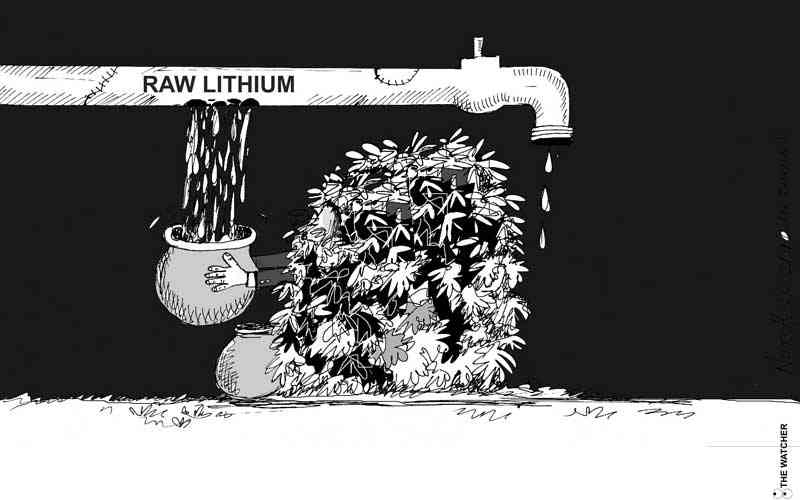
I WAS touched by an impassioned plea made by a fellow Zimbabwean.
He appeared on local television, imploring government to remove value added tax (Vat) on rice. His logic was that rice is a staple foodstuff for most ordinary citizens such that it should be treated the same as mealie-meal, bread, milk, cooking oil, salt and sugar.
These basic commodities recently received a waiver from a 15% Vat previously announced by Finance Minister Mthuli Ncube in his 2024 national budget.
What I found rather unfortunate about this entire affair was the insensitivity and heartlessness in the imposition of such a tax on basic commodities in the first place.
Everyone knows that nearly half of Zimbabwe’s population is living in extreme poverty (earning less than US$2 a day), while two-thirds of the workforce is scrounging under the poverty datum line.
So, why on earth would the Emmerson Dambudzo Mnangagwa administration see it fit to introduce measures which push basic commodities further out of reach of the majority?
The fact that those in authority had to be pressured through public outrage and outcry to reverse these measures on some products is even more disturbing.
It boggles the mind that a government laden with all manner of academics, carrying such titles as doctor or professor so and so could not foresee the suffering these taxes would cause to an already impoverished nation.
- Chamisa under fire over US$120K donation
- Mavhunga puts DeMbare into Chibuku quarterfinals
- Pension funds bet on Cabora Bassa oilfields
- Councils defy govt fire tender directive
Keep Reading
Or, maybe they simply chose to ignore these obvious negative effects.
In fact, the plea by the man I mentioned earlier exposed just how detached those in power are from real life in Zimbabwe.
Do they not know how ordinary folk are surviving and what they eat? What else can we say when those at the helm are not even aware that rice is now a staple for most families in the country?
On which planet are these privileged few residing? Are they from Mars? What do they think their uncles, aunts, cousins, nephews and nieces are surviving on?
We all know that the ruling elite and their close families are immune to the countrywide socio-economic suffering because they are benefiting immensely from the looting and plundering of our national resources.
Nevertheless, it is hard for me to believe that every single relative of theirs is rolling in wealth — even those distant ones in the depths of rural Zimbabwe.
Do they never meet at family funerals or weddings — such that they could at least see and understand how the other half (for lack of a better word) exists?
It makes no sense at all that a government in touch with the common man, woman and child would impose such taxes well aware of the added burden.
As much as it is commendable that the Vat on some products was subsequently removed — however, it still boggles the mind why it was imposed in the first place.
There is more.
Rice is not the only a basic commodity that was not removed and still remains on the standard Vat rating. There is meat, bath soap, laundry powder and toothpaste.
For some strange reason, the Mnangagwa administration believes eating meat, bathing, wearing clean clothes, brushing teeth and, of course, having rice are luxuries, hence the heavy tax.
It is hardly surprising as this is the same President who, in January 2020, told a crowd complaining about the unaffordable meat to eat vegetables and potatoes!
This is how arrogant and uncaring this regime has become. It really does not care about the ordinary people.
Yet, according to the 2023 rural Zimbabwe Vulnerability Assessment Committee report, approximately 26% of rural households will be cereal insecure this year. This translates to approximately 2,7 million people who will require about 100 000 tonnes of cereal.
In the 2023 Global Hunger Index, Zimbabwe has a score of 28,0 — meaning a level of hunger that is serious.
Yet what appears to matter for the country’s privileged few is making as much money as they can while sitting on the backs of a suffering and downtrodden population.
Zimbabweans have historically been the most taxed in the region — with high income tax, Vat, toll fees, you name it — yet there is absolutely nothing to show for it.
One then wonders where all that revenue is going?
If anything, our public health and learning institutions lie in near ruin, roads are in an abysmal state and approximately three million Zimbabweans are teetering on the verge of starvation.
Despite the country being endowed with numerous mineral resources, Zimbabweans are still regarded as some of the poorest people in the world. In all this, those in power live as if they are in Hollywood — flaunting their ill-gotten wealth for the poor to see.
Instead of the tax revenue benefiting the ordinary citizens, it is likely lining the already overflowing pockets of the ruling elite.
As such, the rich will only get richer, while the poor get poorer.
This shows that those in power in Zimbabwe are completely detached from the plight of the ordinary citizenry.
Tendai Ruben Mbofana is a social justice advocate and writer. Please feel free to WhatsApp or Call: +263715667700 | +263782283975, or email: mbofana.tendairuben73@gmail.










